Technology
10 Best Healthcare App Development Services in UAE 2026
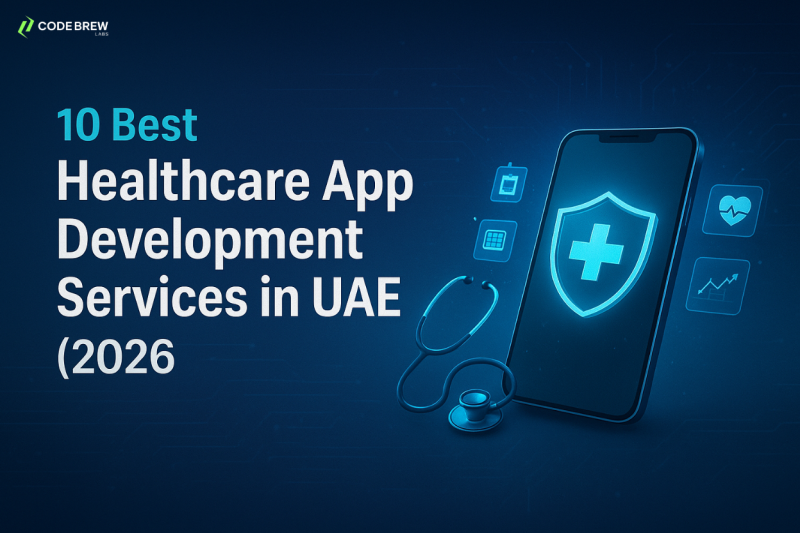
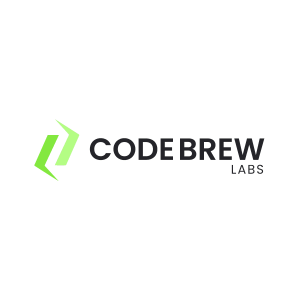 Ai agent
Ai agent
Introduction
Healthcare apps have rapidly evolved from basic appointment tools to advanced digital health ecosystems in the UAE. By 2026, the country has positioned itself as one of the world’s most innovative digital health hubs. This transformation is fueled by strong government support, a booming technology sector, and growing patient demand for convenient, reliable, and AI-powered healthcare solutions. Whether you’re a hospital, clinic, startup, or medical entrepreneur, choosing the right healthcare app development service can dramatically improve patient experience, operational workflows, and medical outcomes. In this article, we explore the 10 best healthcare app development services in the UAE for 2026, what makes them exceptional, and how they can help you build next-generation digital healthcare solutions.
The Rapid Rise of Healthcare Technology in UAE
The UAE has become one of the fastest-growing digital health hubs in the world, and its healthcare technology landscape has transformed dramatically over the past decade. What began as basic telemedicine and appointment-booking tools has evolved into a sophisticated ecosystem powered by AI, cloud computing, robotics, and predictive analytics. Today, healthcare technology in the UAE is more than convenience it’s the backbone of a smarter, more efficient, and more connected healthcare system. Hospitals are no longer just physical spaces; they’re now digital platforms where data flows effortlessly between doctors, patients, and medical devices.
One of the key reasons behind this explosive rise is the UAE’s unwavering commitment to building a world-class healthcare infrastructure. Government initiatives such as the Dubai Health Strategy, Abu Dhabi’s digital transformation programs, and the emphasis on smart hospitals have created an environment where innovation isn’t just welcomed it’s expected. As a result, healthcare providers are investing in advanced mobile apps, remote monitoring systems, AI-powered diagnostics, and virtual health platforms that improve patient outcomes and reduce operational costs.
In addition, the UAE’s diverse population comprised of locals, expatriates, and medical tourists demands flexible healthcare solutions. This diversity pushes developers and healthcare facilities to create multilingual, user-friendly apps with global standards. From AI chatbots to virtual clinics, the UAE’s healthcare technology revolution is not slowing down anytime soon. If anything, 2026 marks another milestone in a journey toward smarter, more connected health services that redefine how people manage their well-being every single day.
Why Healthcare App Development Is Booming in 2026
Healthcare app development is experiencing unprecedented growth in 2026, and several powerful factors are driving this demand. First, the UAE is heavily invested in becoming a digital-first nation, and healthcare is one of the top sectors benefiting from this commitment. Government support, combined with technological innovation, has made the UAE the perfect environment for healthcare startups, medical software companies, and digital transformation providers. Hospitals and clinics that once relied on traditional systems are now seeking mobile-first solutions to modernize their operations and attract digitally savvy patients.
Another factor contributing to this boom is the rise of lifestyle diseases such as diabetes, hypertension, and cardiovascular issues. These conditions require continuous monitoring, timely interventions, and convenient patient-doctor communication. Healthcare apps provide exactly that. Instead of visiting a clinic every few weeks, patients can now use mobile applications to track glucose levels, record vitals, receive tailored health recommendations, and alert doctors if something unusual happens. This shift toward preventive and long-term care has accelerated the adoption of health apps like never before.
The increased comfort level with digital interactions is also playing a huge role. The pandemic years changed how people view healthcare, pushing them to embrace online consultations, remote monitoring, and virtual prescriptions. Even after restrictions were lifted, people found digital healthcare faster, safer, and more efficient and they never looked back. As a result, healthcare providers are racing to develop apps that offer seamless booking, e-prescriptions, medical records access, symptom checkers, and AI triage systems.
Lastly, competition within the UAE healthcare market has intensified. Hospitals and clinics want to stand out, and a high-quality mobile app is now a powerful differentiator. With more people searching for doctors online and preferring digital communication, healthcare organizations know that a well-designed app can increase trust, loyalty, and engagement. All these factors combined make 2026 a golden year for healthcare app development in the UAE.
The Growing Demand for Healthcare Apps in the UAE
The demand for healthcare apps in the UAE is skyrocketing, driven by a mix of technological, cultural, and lifestyle changes. More people than ever are turning to their smartphones to manage everyday tasks from shopping to banking and healthcare has naturally followed this digital trend. Patients now expect instant access to medical services, and healthcare apps provide the perfect bridge between convenience and care. Whether it’s booking appointments, consulting a doctor through video call, accessing medical reports, or monitoring chronic conditions, mobile apps offer unmatched flexibility.
Another key driver behind this demand is the UAE’s fast-paced lifestyle. Many residents work long hours and prefer solutions that save time. A healthcare app eliminates the need to wait in long clinic lines or make multiple phone calls. Instead, everything is available at their fingertips. Additionally, the increasing reliance on wearable devices such as smartwatches has pushed people to track their health more proactively. When apps integrate seamlessly with these wearables, users get a 360-degree view of their wellness.
Hospitals and clinics are also recognizing the importance of digital engagement. To stay competitive, they are offering apps that not only streamline appointments but also include telemedicine consultations, medication reminders, and health education. These apps help reduce patient load in physical facilities and improve the overall experience.
Moreover, UAE residents are highly open to technological solutions due to the country’s strong digital infrastructure and high internet penetration. Smart city initiatives and the push toward paperless healthcare services have made digital health solutions a natural next step. As a result, both public and private healthcare providers are investing heavily in custom healthcare apps to meet the evolving needs of patients. In 2026, this trend is only expected to grow as digital health becomes deeply integrated into everyday life.
Digital Transformation in Hospitals and Clinics
Digital transformation in UAE hospitals and clinics has become a defining force in reshaping the future of healthcare. Instead of relying on outdated manual processes, medical facilities are adopting advanced technologies that streamline workflows, reduce errors, and enhance patient satisfaction. Today, nearly every major healthcare institution in the UAE is investing in hospital management systems, AI-driven diagnostic tools, and cloud-based patient data platforms to stay ahead in the digital race.
One of the biggest transformations is the shift to electronic health records (EHR). These digital records allow doctors to instantly access patient history, test results, and treatment plans from any location. This reduces duplication, improves coordination, and ensures more accurate diagnoses. Patients also benefit because they can access their medical records through secure mobile apps, improving transparency and empowering them with their own health data.
Telemedicine is another major change. Hospitals are launching virtual clinics that allow patients to consult specialists from anywhere in the country. This has been a game changer for individuals living in remote areas or those who prefer online consultations for minor issues. Digital transformation has also introduced advanced appointment booking systems, automated reminders, and AI-assisted triage tools that direct patients to the right doctor based on symptoms.
Operational efficiency has soared as well. Hospitals now use smart scheduling software, digital payment systems, pharmacy automation, and AI-powered imaging tools to reduce wait times and improve accuracy. Even administrative tasks like billing, insurance verification, and document processing are becoming automated, minimizing human error and saving time.
Together, these advancements create a connected ecosystem that supports both patients and healthcare providers. Digital transformation isn’t just a trend it’s the new standard for medical excellence in the UAE.
Patient Shift Toward Mobile-First Healthcare
Patients in the UAE are increasingly shifting toward mobile-first healthcare, and this trend is reshaping how medical services are delivered. With smartphones becoming an essential part of daily life, people expect healthcare to be accessible with the same speed and convenience as ordering food or booking a ride. This growing expectation for instant, on-demand care has pushed healthcare providers to prioritize mobile-friendly solutions.
One of the main reasons for this shift is convenience. Busy lifestyles make traditional clinic visits challenging, especially for working professionals. A mobile app eliminates these hurdles by allowing patients to schedule appointments, access lab results, and even chat with doctors on their own time. Additionally, mobile apps offer features like medication reminders, health tips, and chronic disease monitoring, making everyday healthcare more proactive and user-focused.
Another factor is trust. Patients feel more in control when they can view their records, track their symptoms, and communicate directly with medical teams. This level of transparency builds confidence and reduces anxiety especially for patients with long-term conditions like diabetes or heart disease.
Younger generations are particularly driving the mobile-first movement. Millennials and Gen Z are digital natives who prefer apps over phone calls or in-person visits. They expect seamless design, instant notifications, and personalized recommendations. Healthcare providers who don’t offer such features risk becoming outdated.
Mobile-first healthcare also aligns with the UAE’s national digital health goals. Government initiatives are pushing for app-based health access, paperless services, and smart tools that support preventive care. As more hospitals adopt mobile apps, patients naturally shift toward them because they offer better speed, accuracy, and accessibility.
Overall, the shift toward mobile-first healthcare is not just a preference it’s a necessity that’s transforming the entire medical experience.
Key Trends Shaping Healthcare App Development in 2026
Healthcare app development in 2026 is being shaped by powerful trends that redefine how medical services are delivered and consumed. As technology evolves, so do patient expectations, pushing healthcare providers to adopt innovative digital solutions. The UAE, with its smart city infrastructure and tech-friendly population, is at the forefront of this transformation. Several key trends are shaping the future of healthcare apps, making them smarter, more efficient, and more personalized than ever before.
One major trend is the integration of artificial intelligence in diagnosis and treatment planning. AI tools can analyze symptoms, read medical images, and predict potential health risks with remarkable accuracy. This allows doctors to make faster and more precise decisions. Another trend gaining traction is the rise of virtual consultations. With more patients seeking convenience and safety, telemedicine has become a mainstream service rather than an emergency alternative.
The demand for remote health monitoring is also increasing. Wearables and smart devices now track vital signs round-the-clock, sending real-time data to apps that notify doctors or caregivers about potential issues. This shift is particularly helpful for chronic disease management.
Finally, medical IoT devices are transforming healthcare into a connected ecosystem. From smart insulin pens to Bluetooth-enabled blood pressure monitors, these devices provide continuous data that improves diagnosis, enhances treatment, and reduces hospital visits. Together, these trends are laying the foundation for a healthcare system that is smarter, more responsive, and deeply personalized to each patient’s needs.
AI Diagnosis
Artificial intelligence has become one of the most influential technologies in healthcare app development, especially in 2026. AI-powered diagnosis tools help doctors analyze symptoms, identify patterns, and make data-driven decisions with incredible accuracy. These tools work by processing enormous amounts of medical data lab results, images, historical records, and real-time vitals to generate insights that would take humans hours or days to uncover.
One of the biggest advantages of AI diagnosis is early detection. Apps equipped with AI algorithms can detect anomalies in heart rate, blood sugar levels, respiratory patterns, and more, alerting patients before the condition becomes severe. In diseases like cancer or cardiac disorders, early detection can drastically improve survival rates. AI also plays a key role in medical imaging. Apps now use machine learning models to analyze X-rays, MRIs, and CT scans, helping radiologists detect issues faster and with higher precision.
AI chatbots are another area gaining popularity. These bots perform initial assessments by asking patients questions, analyzing symptoms, and recommending next steps. Instead of waiting hours for a doctor, patients receive instant guidance. This reduces unnecessary clinic visits and helps doctors focus on more critical cases.
Additionally, AI supports personalized treatment plans. By analyzing patient behavior, genetics, and lifestyle data, healthcare apps can offer customized recommendations for diet, exercise, and medication. This level of personalization was unimaginable a few years ago.
Overall, AI diagnosis is transforming healthcare apps into powerful tools that empower both patients and doctors. With its ability to learn, adapt, and improve over time, AI is becoming a cornerstone of modern medical care in the UAE and beyond.
Virtual Consultations
Virtual consultations have become one of the most in-demand healthcare services in the UAE, especially by 2026. Patients love them for their convenience and speed, while healthcare providers appreciate how they reduce pressure on physical facilities. Instead of traveling, waiting in lines, or scheduling days in advance, patients can speak to qualified doctors directly through mobile apps or video platforms within minutes.
Virtual consultations are perfect for treating minor illnesses, conducting follow-ups, managing chronic diseases, and offering mental health support. They save patients time and help doctors see more cases throughout the day. With the UAE’s diverse population, virtual consultations also make it easier for people to connect with specialists who speak their language or understand their cultural background.
One of the biggest factors driving the adoption of virtual care is the improvement in digital infrastructure. High-speed internet, advanced communication tools, and secure video platforms ensure smooth and private consultations. Apps also integrate features like digital prescriptions, sick notes, and online payments, making the process seamless from start to finish.
For healthcare providers, virtual consultations reduce no-show rates, improve patient satisfaction, and create new revenue streams. They also enable hospitals to reach remote areas where medical services are limited. As more hospitals and clinics recognize the benefits, virtual consultations have become a core feature in healthcare app development.
In 2026, the trend continues to grow as patients embrace digital-first solutions and healthcare providers invest in secure, efficient telemedicine technologies.
Remote Health Monitoring
Remote health monitoring has become a game changer in 2026, allowing doctors to track patients’ health in real time without requiring frequent hospital visits. This technology is especially helpful for managing chronic illnesses like diabetes, hypertension, heart disease, and respiratory conditions. With the help of wearables, smart sensors, and mobile apps, patients can monitor their vitals and share data directly with healthcare professionals.
The biggest advantage of remote monitoring is early intervention. When an app detects abnormal readings whether it’s blood pressure spikes or irregular heartbeats it sends instant alerts to both patients and doctors. This reduces hospital admissions, prevents emergencies, and improves overall health outcomes. Patients feel safer knowing their health is being watched 24/7, and doctors gain valuable insights into their long-term health trends.
Another benefit is convenience. Instead of traveling for regular check-ups, patients can stay home while still receiving high-quality medical care. This approach is especially useful for elderly patients or those with limited mobility. Apps also support medication tracking, symptom logging, and personalized reminders, helping users stay on track with their treatment plans.
Remote monitoring also helps hospitals optimize resources. By reducing unnecessary visits, clinics can focus on urgent or complex cases. Health data collected through apps also enables doctors to create more accurate treatment plans and monitor the effectiveness of medications.
Overall, remote health monitoring has become a cornerstone of digital healthcare in the UAE, offering a safer, smarter, and more proactive way to manage health.
Medical IoT Devices
Medical IoT devices also known as the Internet of Medical Things (IoMT) are revolutionizing healthcare by connecting medical equipment, sensors, and mobile apps into one intelligent ecosystem. In 2026, these devices play a major role in enhancing patient care, improving diagnosis accuracy, and enabling continuous monitoring. From smart insulin pumps to wearable ECG monitors, IoT devices are transforming how healthcare providers collect and analyze patient data.
One of the main benefits of IoMT is real-time data sharing. Devices automatically send readings to mobile apps, allowing doctors to monitor patient vitals without needing physical visits. This is especially crucial for high-risk patients who require constant observation. For example, IoT-enabled blood glucose meters send alerts when sugar levels drop, while smart asthma inhalers track usage patterns and environmental triggers.
Another key advantage is automation. Many IoT devices perform tasks automatically such as adjusting insulin dosage or generating reports reducing human error and improving treatment accuracy. Hospitals also use IoT devices for managing equipment, tracking inventory, and ensuring timely maintenance.
Medical IoT also enhances patient engagement. With interactive dashboards and personalized health insights, users feel more involved in their wellness journey. These devices also help doctors create data-driven treatment plans based on months of recorded vitals rather than isolated readings.
In the UAE, IoT technology is widely adopted due to the country’s smart infrastructure and tech-forward population. As more healthcare providers integrate IoMT into their systems, medical care becomes faster, safer, and more intelligent.
What Makes a Great Healthcare App Development Company?
A great healthcare app development company isn’t just one that writes clean code or builds attractive interfaces. It is a company that understands the unique challenges, regulatory requirements, and emotional aspects of healthcare. Unlike regular apps, healthcare applications deal with sensitive patient data, medical workflows, and life-impacting decisions. This means the company you choose must combine technical expertise with deep industry knowledge.
The best companies start by analyzing the needs of healthcare providers and patients. They study how clinics operate, what problems patients face, and how digital solutions can make the experience smoother and more efficient. Instead of offering generic app development, they create custom solutions designed specifically for hospitals, clinics, pharmacies, labs, or telemedicine platforms.
Another important factor is their ability to innovate. Great healthcare app developers stay updated on the latest trends AI in diagnostics, IoMT devices, wearable tech, remote monitoring tools, predictive analytics, and blockchain security. They’re not just following trends; they’re implementing them in smart, user-friendly ways that simplify healthcare delivery.
A reliable healthcare development company also focuses heavily on testing. Since medical apps can influence life-critical decisions, they must be error-free, secure, and dependable. Great companies conduct rigorous testing across multiple devices, networks, and real-life scenarios to ensure the app performs flawlessly.
Finally, a top healthcare app developer believes in long-term partnerships, offering post-launch support, updates, and scalability. Healthcare technology evolves constantly, and your app must grow with it. This means ongoing maintenance, feature upgrades, and security enhancements are essential.
Together, these qualities ensure the healthcare app is safe, efficient, compliant, and capable of creating real impact in people’s lives.
Expertise
Expertise is the backbone of any exceptional healthcare app development company. Unlike other industries, healthcare requires a deep understanding of medical workflows, patient needs, and regulatory responsibilities. A company with the right expertise doesn’t just write code it understands the language of doctors, the challenges of nurses, and the concerns of patients. They can map out entire healthcare ecosystems, from appointment booking and digital prescriptions to AI diagnostics and IoMT integrations.
Companies with strong expertise will have experience building different types of healthcare solutions: telemedicine apps, EMR/EHR systems, pharmacy delivery platforms, remote monitoring dashboards, mental health apps, fitness trackers, and outpatient management systems. The more variety they’ve handled, the better equipped they are to create a high-performing solution tailored to your needs.
Technical expertise also plays a huge role. The healthcare industry is rapidly adopting advanced technologies such as artificial intelligence, machine learning, computer vision, wearable tech integration, cloud architectures, and medical IoT ecosystems. A competent company will not only understand these technologies but know how to merge them into a seamless, patient-friendly digital experience.
But expertise goes beyond engineering it includes understanding how healthcare workflows operate. Developers should know how appointments are scheduled, how labs process results, how pharmacies manage prescriptions, and how hospitals coordinate between departments. This understanding allows them to build apps that actually solve real-world healthcare problems.
A healthcare app development company with true expertise also creates efficient, intuitive user experiences. They know what information doctors need instantly, how patients navigate interfaces, and how to design dashboards that reduce stress instead of adding to it. Expertise allows them to build apps that work not just look good and deliver meaningful value for both providers and patients.
Compliance (HIPAA, DHA, GDPR)
Compliance is one of the most important pillars of healthcare app development. When apps deal with sensitive medical information, protecting patient data becomes non-negotiable. A great healthcare app development company must fully understand and adhere to global and local healthcare regulations such as HIPAA (in the U.S.), GDPR (in the EU), and DHA standards (specific to Dubai and the UAE).
Compliance ensures that patient information is handled with the highest level of security. This includes encrypting data, controlling access, preventing unauthorized sharing, and ensuring transparency in how data is collected and used. A company that ignores compliance risks legal penalties, damaged reputation, and loss of user trust. That’s why top developers treat compliance as a foundational requirement rather than a technical afterthought.
HIPAA compliance ensures that apps protect patient health information and secure it during transmission and storage. This is essential for telemedicine platforms, EHR systems, and remote monitoring apps. GDPR focuses on data privacy, user consent, storage policies, and transparency. Since the UAE serves an international community, GDPR compliance is just as critical.
The Dubai Health Authority (DHA) has its own strict rules for how digital health data should be stored and processed. A good development company understands these regulations deeply and ensures the app follows every rule, from secure hosting to ethical data usage.
Compliance also includes adopting advanced cybersecurity measures such as multi-factor authentication, secure APIs, intrusion detection systems, and encrypted health records. It’s not just about meeting legal standards it’s about earning patient trust and protecting the integrity of healthcare systems.
A company that prioritizes compliance demonstrates professionalism, responsibility, and awareness of the sensitive nature of medical data making them a trustworthy partner for healthcare innovation.
UI/UX
In healthcare, UI/UX is not just about design; it’s about safety, clarity, accessibility, and emotional comfort. A healthcare app with poor UI/UX can confuse patients, frustrate doctors, or even lead to dangerous mistakes. That’s why great healthcare app development companies invest heavily in designing clean, intuitive, and user-friendly interfaces.
A strong user experience starts with understanding the needs of the app’s audience. Patients want simplicity easy navigation, readable text, clear buttons, and quick access to essential features like appointments, prescriptions, and test results. Doctors, on the other hand, want efficiency. They need dashboards that load quickly, present accurate data, and reduce the number of clicks required to complete a task. A well-designed UI improves speed, accuracy, and communication.
Accessibility is another essential aspect. Healthcare apps must be usable for people of all ages, including elderly users who may struggle with complex interfaces. This means larger fonts, simple layouts, voice search, and multilingual options. In the UAE, where the population is highly diverse, appealing to multiple cultures and languages is crucial.
A great UI/UX designer also understands the emotional side of healthcare. Patients often use these apps during stressful moments waiting for results, managing chronic illness, or searching for medical help. A comforting design with warm colors, clear instructions, and supportive messages can significantly ease anxiety and improve user engagement.
Finally, UI/UX must align with functionality. The design should support telemedicine features, wearable integrations, AI chatbots, and secure data exchange without overwhelming users. When UI/UX is done right, the entire healthcare experience feels smoother, faster, and more reliable exactly what modern users expect from a top-tier health app.
Top 10 Healthcare App Development Services in UAE 2026
1 – Code Brew Labs
Overview and Services
Code Brew Labs is widely recognized as one of the leading healthcare app development companies in the UAE, especially in 2026, where their technical expertise and innovation-driven approach have helped countless healthcare providers transition into the digital era. Established as a global app development powerhouse, Code Brew Labs has built a strong presence in Dubai by delivering high-performing mobile apps, digital health solutions, and enterprise medical software tailored to the UAE’s evolving healthcare landscape.
The company offers a diverse range of services including telemedicine app development, pharmacy delivery app solutions, remote patient monitoring systems, appointment scheduling platforms, and AI-driven health analytics tools. Hospitals and clinics rely on Code Brew Labs because they not only build apps but create complete digital transformation ecosystems. Their solutions include cloud integration, HIPAA-compliant systems, IoT-based patient monitoring, EHR/EMR software development, and insurance integration modules.
What sets Code Brew Labs apart is their holistic approach starting from concept validation and UI/UX design to backend architecture, AI algorithm development, app testing, deployment, and long-term support. They understand that healthcare apps must be stable, secure, and user-friendly, and they focus on eliminating friction for both patients and medical providers. Whether a healthcare brand wants a simple doctor booking app or a large-scale hospital management system, Code Brew Labs delivers customized, future-ready digital solutions.
Specializations
Code Brew Labs specializes in developing telemedicine platforms that combine video consultations, e-prescriptions, secure payments, and digital medical record access. They also excel in IoMT integration, enabling devices such as smart thermometers, glucose monitors, BP monitors, and fitness wearables to sync with mobile apps.
Their AI capabilities are especially advanced offering predictive health analytics, automated symptom checkers, AI chatbots, and machine-learning-powered triage systems. They also build mental health apps, fitness apps, and remote monitoring dashboards widely used across the UAE.
Key Strengths
- Proven experience with large hospitals in Dubai and Abu Dhabi
- Strong expertise in AI, IoMT, and cloud technologies
- Exceptional UI/UX tailored for multilingual UAE audiences
- Granite-level security and compliance (HIPAA, GDPR, DHA)
- Fast development cycles without compromising quality
2 – Emirates Digital Innovations (EDI)
Overview
Emirates Digital Innovations (EDI) has quickly risen to become one of the UAE’s most trusted healthcare app development partners in 2026. The company is known for blending modern technologies with deep healthcare industry knowledge, delivering solutions that improve patient engagement and operational efficiency. With headquarters in Dubai Internet City, EDI collaborates with hospitals, clinics, labs, insurance companies, and government health programs to build advanced medical software.
EDI offers comprehensive digital solutions including telehealth platforms, AI-powered diagnostic assistance, virtual care ecosystems, mobile health apps, wearable integration platforms, and smart hospital management systems. Their developers come from strong engineering backgrounds, and their medical consultants ensure that every product aligns with UAE healthcare workflows.
Unlike many companies that use generic templates, EDI custom-builds its solutions based on each client’s needs. This makes them highly sought after by premium healthcare providers looking for advanced, futuristic, and fully scalable platforms.
Why They Stand Out
EDI stands out for its commitment to innovation and compliance. The company adheres strictly to DHA guidelines and international regulations, ensuring patient data is always protected. Their applications include multi-layered security encryption, AI-driven fraud detection, and data-tracking mechanisms to maintain transparency and trust.
Another major strength is their work with real-time medical data. EDI’s remote patient monitoring systems integrate with IoT devices and wearable sensors, feeding doctors accurate and actionable insights. Their platforms also support predictive analytics, helping healthcare providers detect problems before they escalate.
Finally, EDI is known for creating beautifully designed applications with effortless navigation. Patients enjoy using their apps because they are intuitive, multilingual, and built for the UAE’s diverse population.
3 – Dubai Health Coders (DHC)
Core Services
Dubai Health Coders (DHC) is one of the most innovative digital health software companies in the UAE, specializing exclusively in healthcare solutions. Their core services include telemedicine app development, AI diagnostic tools, e-prescription platforms, hospital workflow automation solutions, EHR/EMR software, and patient engagement apps.
DHC works closely with major hospitals in Dubai Health City and Dubai Silicon Oasis, building advanced systems customized for different medical specialties cardiology, pediatrics, dermatology, endocrinology, geriatrics, and more. They also offer healthcare CRM systems, lab management software, and medical billing platforms that integrate seamlessly with UAE insurance systems.
Notable Achievements
One of DHC’s biggest achievements is their role in developing AI-based radiology analysis apps used in top-tier hospitals in Dubai. Their applications help radiologists detect abnormalities in X-rays and CT scans with higher accuracy and faster reporting times.
DHC also developed one of the UAE’s first multilingual mental health therapy apps, widely used by expats and locals seeking private professional support. Additionally, they built a pediatric monitoring app that tracks children’s growth metrics and connects parents with specialists instantly.
Their commitment to innovation makes them one of the most trusted healthcare app development companies in the region.
4 – TechCure UAE
What They Offer
TechCure UAE is a premium healthcare app development company known for building next-generation digital health platforms using powerful emerging technologies. Their offerings include telehealth apps, remote monitoring dashboards, emergency care apps, pharmacy management systems, wearable-enabled patient tracking systems, and complete digital hospital ecosystems.
TechCure is particularly impressive with enterprise-level software designed for large hospitals and multi-branch healthcare groups. Their apps unify patient data, doctor schedules, lab results, pharmacy systems, and insurance approvals in a single intelligent platform.
They also specialize in creating smart outpatient systems, digital triage assistants, and 24/7 virtual care platforms for clinics looking to expand services online.
Technologies Used
TechCure uses some of the most advanced technologies in the market:
- AI & ML algorithms for predictive diagnosis
- Blockchain for secure medical data sharing
- IoMT integration with sensors and wearables
- Cloud platforms like AWS HealthLake, Azure HealthCloud
- Computer vision for medical imaging enhancement
- Microservices architecture for scalable hospital systems
Their technical depth makes them one of the strongest competitors in UAE healthcare software development.
5 – InnovaCare Software Labs
Specializations
InnovaCare Software Labs has earned a strong reputation across the UAE for building powerful, customizable, and intuitive healthcare software solutions tailored for modern medical environments. Their specialization revolves around developing highly integrated digital ecosystems that connect doctors, patients, labs, pharmacies, and insurers without friction. What makes InnovaCare unique is their laser-focused approach to solving real healthcare challenges reducing patient wait times, optimizing clinical workflows, simplifying digital consultations, and boosting hospital productivity through automation.
Their areas of specialization include EHR/EMR development, telemedicine platforms, pharmacy delivery applications, AI-powered symptom checkers, hospital management systems, remote patient monitoring systems, and chronic disease tracking applications. They also develop intelligent clinical decision-support software that assists doctors in identifying risk factors, predicting complications, and improving diagnostic accuracy.
InnovaCare is also widely respected for its expertise in health data analytics. Their platforms transform raw medical data into actionable insights that hospitals use to improve treatment planning, staffing, resource allocation, and patient experience. Additionally, the company integrates IoT devices, wearable sensors, and smart home medical tools to give doctors real-time insights into patients’ vitals.
Top Healthcare Projects
InnovaCare Software Labs has completed several major projects in the UAE healthcare sector. One of their most notable achievements is developing a full-scale telemedicine infrastructure for a chain of multi-specialty hospitals in Abu Dhabi, offering video consultations, AI-driven symptom triage, medical records access, and e-prescriptions within a single app.
Another flagship project includes an advanced neonatal care monitoring app, designed to give pediatricians real-time access to infant vitals from NICU incubators. The company also built a multilingual mental-wellness platform used by thousands of UAE residents, providing therapy matching, video counseling, emotional check-ins, and AI-assisted mood tracking.
Their track record proves their ability to handle projects that require precision, scalability, and ultra-high reliability.
6 – SmartMedical App Developers
Features
SmartMedical App Developers is best known in the UAE for creating healthcare apps that balance simplicity with powerful functionality. Their products are packed with features that make medical interactions smooth, intuitive, and accessible for patients across all age groups.
Key features in their solutions include:
- Fast appointment booking & queue management
- Secure video consultations with HD clarity
- Digital prescriptions synced with partner pharmacies
- Smart healthcare reminders for medication, vitals tracking, and follow-ups
- EMR syncing & doctor dashboards
- AI symptom assessment tools
- Integrated lab test booking & report delivery
- Multi-language support built for the UAE’s diverse population
Their design philosophy revolves around making healthcare feel personal, comfortable, and easy even for elderly users unfamiliar with technology. They build apps that load quickly, run smoothly on all devices, and follow DHA and international compliance standards.
Healthcare Solutions Ecosystem
SmartMedical App Developers focus on building complete healthcare ecosystems rather than isolated apps. Their ecosystem includes doctor apps, patient apps, hospital admin portals, lab dashboards, pharmacy management systems, insurance verification modules, and IoT monitoring tools.
This interconnected ecosystem allows hospitals to centralize their workflows: doctors can access patient history instantly, labs can update test results in real time, pharmacies receive prescriptions automatically, and patients enjoy seamless communication.
Their emphasis on ecosystem-based healthcare makes them a preferred partner for clinics transitioning to smart digital operations.
7 – Gulf Digital Health Systems (GDHS)
Hospital Information System Expertise
GDHS is one of the UAE’s strongest players in Hospital Information Systems (HIS). Their HIS solutions cover everything from patient registration and billing to advanced clinical modules, nursing workflows, surgical management, radiology workflows, ambulance dispatch, and ward occupancy systems.
Their systems are known for unparalleled stability and scalability, making GDHS a top choice for large hospitals with complex operations. They also excel in integrating HIS with laboratory systems, pharmacy management software, insurance portals, and national health databases.
Enterprise-Level Apps
GDHS develops enterprise-level healthcare applications designed for multi-branch hospitals, government facilities, and specialty centers. Their enterprise apps offer:
- Unified patient databases
- Centralized staff scheduling
- Real-time KPI dashboards
- AI-assisted inventory and resource management
- Remote collaboration tools for specialists
- Government compliance automation
Their solutions help healthcare organizations operate more efficiently, reduce operational costs, and make data-driven decisions. GDHS is especially known for its reliability, making them a trusted partner for mission-critical healthcare software.
8 – Al Noor IT & Healthcare Apps
Remote Care Platform Mastery
Al Noor IT & Healthcare Apps has built a strong reputation across the UAE for its mastery in developing advanced remote care platforms. Unlike generic app development companies, Al Noor has a specialized focus on telehealth, remote patient monitoring, and digital home-care ecosystems making them one of the most reliable partners for clinics and hospitals shifting toward long-term virtual healthcare.
Their remote care platforms are built to support continuous, real-time engagement between patients and medical professionals. One of their strongest capabilities is integrating IoT and wearable devices such as glucose meters, heart rate trackers, smart inhalers, and blood pressure monitors into seamless, easy-to-use dashboards. These platforms send updates directly to doctors and caregivers, helping them detect irregularities instantly and intervene before conditions escalate.
Al Noor’s expertise extends to building apps for chronic disease management, elderly care, home nursing coordination, physiotherapy tracking, and long-term rehabilitation programs. Their remote monitoring features include symptom logging, automated health insights, vitals tracking, emergency alerts, medication reminders, and voice/video consultations all packaged in a user-friendly interface designed for all age groups.
One of their standout features is the AI-driven caregiver assistant, which analyzes patient behavior and health patterns to send predictive alerts and recommendations. This is particularly valuable for families caring for seniors or patients with mobility challenges.
In terms of compliance, Al Noor follows strict DHA, HIPAA, and GDPR guidelines. Their remote care systems use advanced encryption, secure cloud environments, and multi-factor authentication to protect patient data.
With a focus on long-term, at-home medical support, Al Noor IT & Healthcare Apps continues to lead the UAE’s transition toward hybrid and digital healthcare models.
9 – CodeUAE Health App Studio
End-to-End Solutions
CodeUAE Health App Studio is one of Dubai’s most versatile healthcare app development firms, offering fully customized, end-to-end solutions for hospitals, startups, and medical organizations. Their development process covers every stage from ideation, UI/UX design, backend engineering, integrations, testing, deployment, and post-launch upgrades. This makes them a complete one-stop partner for healthcare digitalization.
One of their major strengths is building modular medical systems, where hospitals can add new services over time telemedicine modules, pharmacy integrations, insurance claim automation, medical billing, or AI diagnostic tools without rebuilding the entire application. This scalability attracts organizations looking for long-term digital transformation.
Their end-to-end solutions include:
- Teleconsultation apps
- EHR/EMR systems
- Pharmacy delivery and inventory apps
- Health insurance verification modules
- Digital mental health platforms
- Lab test booking and reporting systems
- Smart appointment and queue management apps
- Remote patient monitoring platforms
What makes CodeUAE special is how they seamlessly merge all these services into fully connected ecosystems that support fast communication between patients, doctors, labs, and pharmacies.
Notable Features
CodeUAE incorporates powerful features designed to enhance both patient experience and doctor productivity. Some of their most recognized features include:
- AI chatbots for first-level triage
- Real-time doctor availability tracking
- Ultra-secure messaging and encrypted file sharing
- In-app vitals dashboards synced with wearable devices
- Automated insurance approval workflows
- Digital prescription fulfillment
- Multilingual interface supporting UAE’s diverse population
- Interactive patient engagement modules (reminders, wellness tips, and digital onboarding)
Their apps are known for being stable, responsive, visually appealing, and optimized for both iOS and Android. CodeUAE remains a preferred choice among healthcare startups due to their affordable pricing and fast development cycles.
10 – NextGen Health Mobility UAE
Smart Wearable Integration
NextGen Health Mobility UAE is a cutting-edge digital health engineering company specializing in wearable-integrated healthcare solutions. With the popularity of smartwatches, fitness trackers, and medical IoT devices rapidly rising in the UAE, NextGen has positioned itself as the leader in connecting wearables to clinically validated mobile applications.
They integrate devices such as Apple Watch, Fitbit, Garmin, Samsung Galaxy Watch, Oura Ring, and custom medical wearables with hospital systems to deliver real-time health insights. Their platforms can track:
- Heart rate variability
- Blood oxygen (SpO2)
- Sleep cycles
- Stress levels
- Activity & step count
- Blood pressure (via paired devices)
- Glucose levels (for supported IoT devices)
These insights give doctors a continuous stream of patient health data, enabling earlier detection of issues, better medication planning, and more effective long-term care.
NextGen also develops AI-based wearable analytics, turning raw sensor data into intelligent recommendations for patients. This aligns perfectly with the UAE’s growing interest in preventive healthcare and personalized medicine.
Telemedicine Excellence
Beyond wearable integration, NextGen Health Mobility UAE excels in building advanced telemedicine ecosystems that combine video consultations, remote diagnostics, cloud-based EMR systems, and smart health alerts. What sets their telemedicine solutions apart is the level of automation and intelligence built into the platform.
Their telehealth apps include:
- Adaptive video quality for smooth calls
- Integrated digital prescription systems
- One-click medical history access
- AI-powered consultation notes
- Symptom checkers that guide patients before booking
- Emergency response alerts
- Integrated payment gateways
- Unified dashboard for doctors to manage multiple patients
NextGen’s telemedicine design focuses heavily on ease of use, ensuring that even patients with low digital literacy can comfortably connect with doctors.
Their commitment to innovation, compliance, and user-centered design makes NextGen Health Mobility UAE one of the strongest digital health technology partners for both startups and large medical institutions across the country.
How to Choose the Right Healthcare App Development Company in UAE
Choosing the right healthcare app development company in the UAE can make the difference between a successful, high-performing platform and a costly, frustrating experience. Healthcare apps are complex, heavily regulated, and responsible for managing sensitive patient data, so selecting a company requires careful evaluation. The best company isn't always the most expensive or the fastest; it's the one that understands healthcare deeply and builds apps that are safe, scalable, user-friendly, and future-ready.
Start by examining a company’s expertise. A credible healthcare development partner will have real experience working with hospitals, clinics, telemedicine platforms, pharmacies, or diagnostic labs. They should understand medical workflows, patient expectations, regulatory requirements, and the nuances of UAE healthcare standards. Look for portfolios that include EHR/EMR systems, telehealth apps, AI-enabled tools, remote monitoring platforms, or healthcare IoT integrations they reveal the company’s true capabilities.
Next, evaluate their grasp of compliance, especially with HIPAA, GDPR, and DHA guidelines. Healthcare apps handle protected health information, so any mistakes can lead to legal penalties, data breaches, and a loss of patient trust. A reliable company should offer encryption, secure cloud hosting, access control systems, and data auditing features as part of their standard development process.
UI/UX is equally important. The UAE has a multicultural population, which means healthcare apps must be intuitive, accessible, multilingual, and easy to navigate even for elderly users. A company with strong design expertise will prioritize clarity, speed, and user comfort.
Choosing the right partner isn’t about picking a developer; it’s about choosing a long-term digital innovation ally who understands both technology and healthcare at a deep level.
Red Flags to Avoid
Not all developers are suitable for healthcare projects, and ignoring red flags can lead to financial losses, delays, or compliance violations. The first major red flag is lack of healthcare experience. If a company has never worked with medical institutions or built healthcare apps, they may not understand critical workflows or safety requirements.
Another warning sign is unclear communication. If the team takes too long to respond, avoids specifics, or gives vague timelines, it often leads to problems later in development.
Be cautious of companies offering unrealistically low prices or “instant app templates.” Healthcare apps must be secure, tested, and compliant cheap shortcuts often result in unstable, unsafe software.
A company that cannot explain its security protocols or compliance strategy should be avoided completely. Healthcare apps demand strict adherence to data privacy laws.
Finally, avoid developers who do not offer maintenance. Healthcare software requires constant updates to remain secure, functional, and compliant with new regulations.
Ignoring these red flags can lead to costly mistakes, so always choose a company with a proven track record, transparency, and strong technical knowledge.
Cost of Healthcare App Development in UAE 2026
Breakdown
Healthcare app development costs in the UAE vary widely depending on features, complexity, compliance, and technologies used. In 2026, the typical development cost ranges from AED 80,000 to AED 650,000+, depending on the type of healthcare solution.
Here’s a breakdown:
- Basic healthcare app (booking, records, reminders)
- AED 80,000 – AED 150,000
- Mid-level app (telemedicine, ePrescription, dashboards)
- AED 150,000 – AED 350,000
- Advanced healthcare platform (AI, wearables, IoT, hospital integration)
- AED 350,000 – AED 650,000+
- Enterprise hospital ecosystem
- AED 700,000 – AED 2,000,000+
Costs also depend on development speed, backend infrastructure, UI/UX detail, cloud hosting, and compliance standards.
Factors Affecting Cost
- App complexity
- AI or IoT integrations
- UI/UX customization level
- Security & compliance requirements
- Third-party APIs (labs, insurance, pharmacy)
- Wearable integration
- Post-launch maintenance
- Server and hosting costs
Understanding these factors helps organizations plan smarter and avoid unexpected financial surprises.
Must-Have Features for a Modern Healthcare Mobile App
Modern healthcare apps must deliver convenience, accuracy, and seamless connectivity. As patient expectations evolve, apps are no longer simple appointment tools they’re intelligent medical platforms that bridge the gap between traditional healthcare and digital accessibility. In the UAE, where smart healthcare adoption is accelerating, a successful healthcare app must include advanced features that enhance user experience, improve clinical efficiency, and support personalized care. Let’s break down the essential features every modern healthcare app should have in 2026.
ePrescription
ePrescription is now a non-negotiable feature in modern healthcare apps. Instead of writing paper prescriptions that patients may lose or misunderstand, healthcare providers can generate digital prescriptions instantly through the app. These prescriptions can be sent directly to pharmacies, reducing wait times and ensuring accuracy. In the UAE, where pharmacy networks are digitally integrated, ePrescriptions streamline care and eliminate errors caused by handwritten notes.
The system also allows patients to reorder medications with one tap, track prescription history, and receive alerts for refills. Doctors benefit as well, gaining access to drug interaction warnings, dosage guidelines, and patient history during prescription creation. With DHA and HIPAA-compliant encryption, ePrescriptions keep data secure while improving medication adherence and patient safety.
Telemedicine
Telemedicine remains one of the most transformative features in digital healthcare. By enabling virtual consultations, telemedicine apps eliminate the need for unnecessary clinic visits, especially for follow-ups, minor illnesses, or chronic disease management. Patients can connect with doctors through high-quality video calls, voice calls, or secure chat.
Telemedicine also expands access to specialists who may be located far away, reducing the burden of travel. For healthcare providers, it helps manage appointments more efficiently and reduces no-shows. Telehealth also improves health outcomes by allowing continuous care instead of sporadic visits. In the UAE, where digital healthcare is fully supported by government initiatives, telemedicine is now considered a standard feature in all modern medical apps.
AI Medical Assistant
AI-powered medical assistants are revolutionizing the healthcare industry. These intelligent systems can analyze symptoms, recommend preliminary steps, and guide users to the right specialist. By processing vast datasets, AI medical assistants can identify patterns, predict potential risks, and offer personalized health advice.
In healthcare apps, these AI assistants work as 24/7 virtual doctors who provide:
- Symptom checking
- Medication reminders
- Lifestyle recommendations
- Emergency risk alerts
- Basic triage before doctor appointments
AI assistants significantly reduce the workload on medical staff by filtering non-critical cases and ensuring patients receive accurate preliminary guidance. When integrated with EMR systems, AI can even highlight chronic risks and help doctors plan better treatment strategies.
Real-Time Chat
Real-time chat is essential in any healthcare app that aims to deliver seamless, patient-centered care. It allows patients to instantly communicate with healthcare providers, nurses, or support staff without waiting for appointments. This feature is invaluable for answering medical questions, resolving prescription concerns, and clarifying treatment instructions.
Real-time chat enhances accessibility, especially for patients who may not feel comfortable with video calls or need quick responses. Healthcare providers also benefit from faster communication, streamlined workflows, and improved patient satisfaction. With encrypted messaging and secure data handling, real-time chat ensures private and reliable interactions that comply with DHA and HIPAA rules.
Common Challenges in Healthcare App Development
Data Privacy
Data privacy is the most critical challenge in healthcare app development. Because medical apps store sensitive health information, even a small mistake can lead to major privacy violations. Developers must ensure proper encryption, secure cloud storage, and strict access control. Apps must comply with DHA, GDPR, and HIPAA guidelines to safeguard patient data at every stage.
Security
Security breaches can compromise medical records, expose identity data, or disrupt treatment workflows. Developers must integrate advanced security techniques such as multi-factor authentication, intrusion detection systems, secure APIs, and encrypted communication channels. Cybersecurity audits and continuous monitoring are essential to ensure the app stays safe against evolving threats.
Interoperability
One of the ongoing challenges in UAE healthcare apps is achieving interoperability seamless data exchange between hospitals, labs, pharmacies, insurance systems, and patient apps. Developers must build standardized APIs, adopt HL7/FHIR protocols, and ensure compatibility with EHR/EMR systems. Without interoperability, digital healthcare loses efficiency and creates information silos that slow down care delivery.
Future of Healthcare App Development Beyond 2026
Predictive Analytics
Predictive analytics will shape the next era of healthcare technology. By analyzing patient history, lifestyle, and real-time data from wearables, apps will be able to predict health risks before symptoms appear. This shift toward preventive healthcare will reduce hospitalizations, improve chronic disease management, and help doctors make proactive decisions.
Robotics in Healthcare
Robotic-assisted healthcare is expected to merge with mobile app ecosystems. Robots will support remote surgeries, automated medication dispensing, elderly care, and rehabilitation therapies. Apps will serve as control centers for monitoring robotic activity, adjusting settings, and communicating with medical teams.
Metaverse Medical Consultations
The metaverse will introduce immersive 3D medical consultations, where patients and doctors interact inside virtual clinics. AR and VR-based diagnostic tools will help specialists examine patients remotely, demonstrate procedures, and simulate treatments. This futuristic model will revolutionize telehealth by adding realism and deeper engagement.
Conclusion
Healthcare app development in the UAE is evolving at an extraordinary pace. With advancements in AI, telemedicine, IoT, and predictive analytics, the future of digital healthcare looks brighter than ever. Choosing the right development partner is essential for creating a secure, patient-friendly, and scalable healthcare solution. Whether you’re building a telemedicine app, an AI diagnostic tool, or a full hospital ecosystem, UAE’s leading developers can transform your vision into reality. As we move beyond 2026, digital health will continue revolutionizing how patients receive care making it faster, smarter, and more connected.
FAQs
1. What is the most important feature a healthcare app needs in 2026?
Telemedicine and AI-based triage are the most crucial features due to their demand and ability to improve patient access.
2. How long does it take to develop a full healthcare app in the UAE?
A complex healthcare app typically takes 3–8 months, depending on features, integrations, and testing.
3. Are healthcare apps legally required to follow DHA guidelines?
Yes. Any app operating in Dubai must meet DHA’s digital health standards to ensure compliance and patient safety.
4. What technology is trending in healthcare app development for the future?
AI diagnostics, wearable integration, predictive health analytics, and AR/VR-based medical services.
5. Can small clinics benefit from healthcare apps?
Absolutely. Even small clinics gain improved patient engagement, faster bookings, and smoother operations with a custom healthcare app.
Source:
Click for the: Full Story
You might like


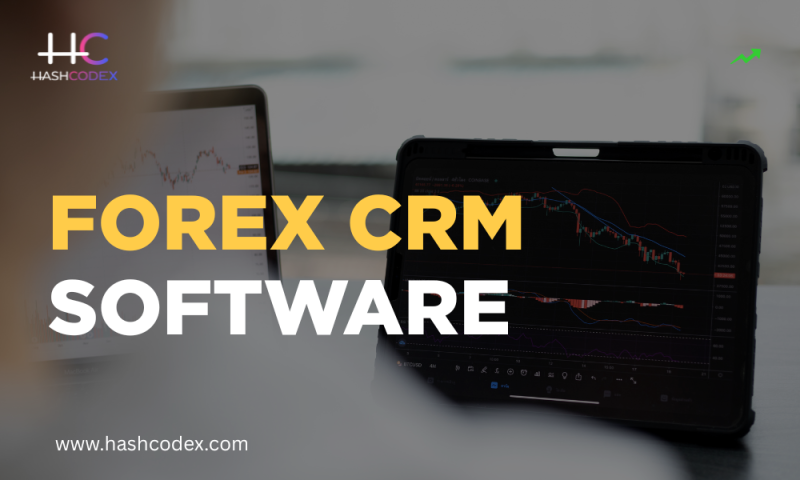
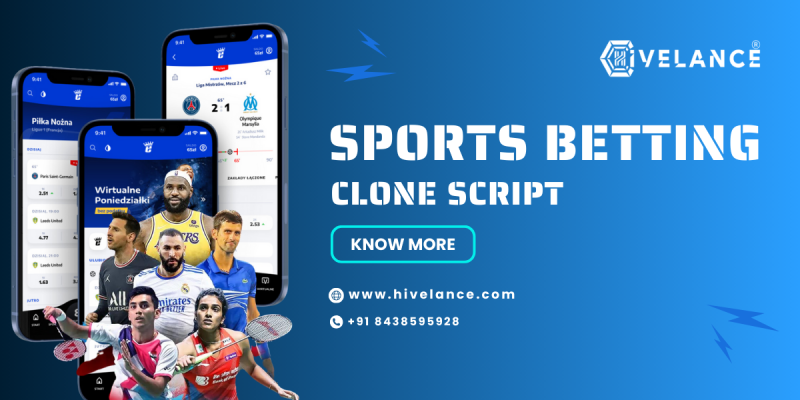

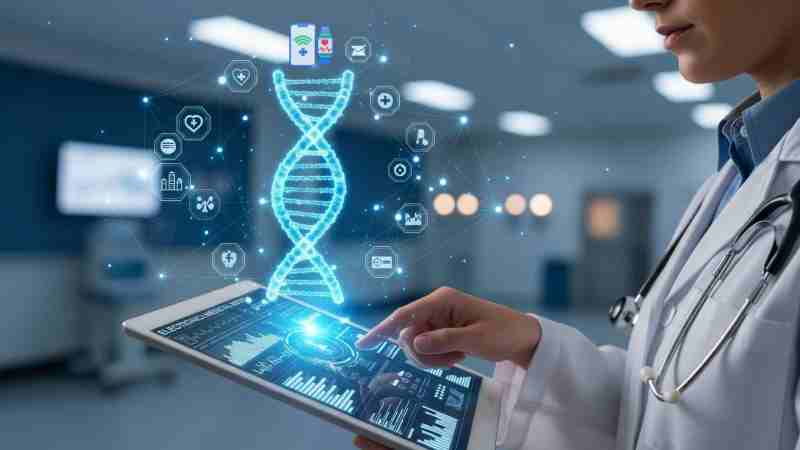

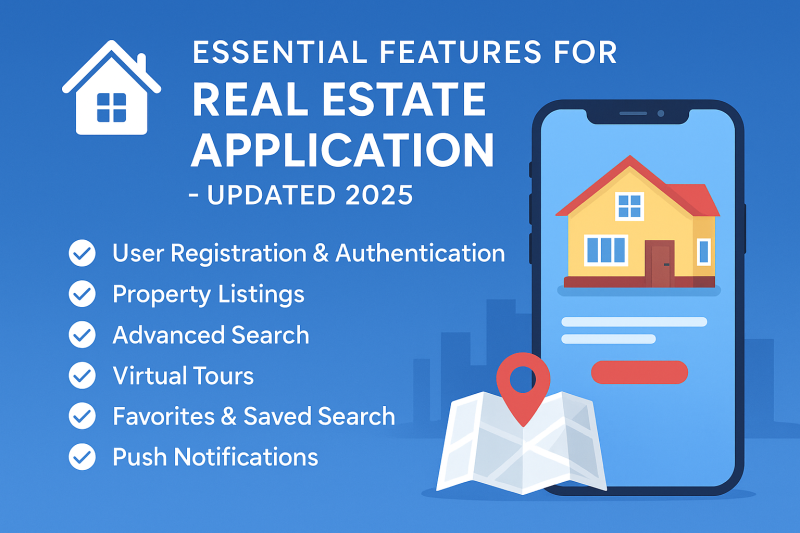

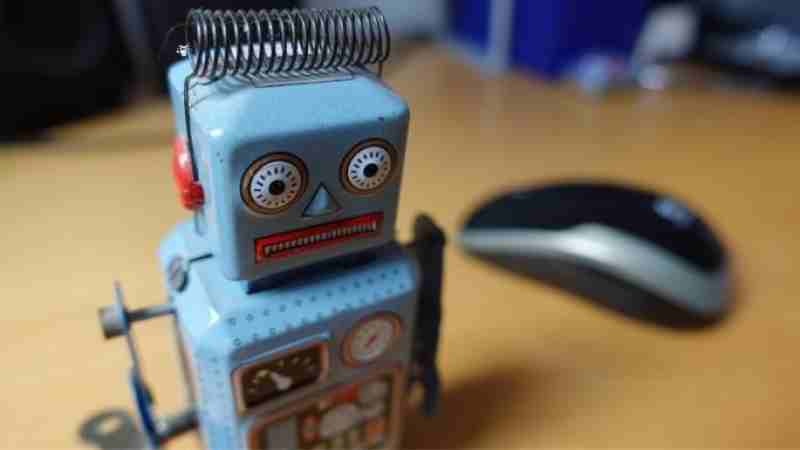



 Close Menu
Close Menu